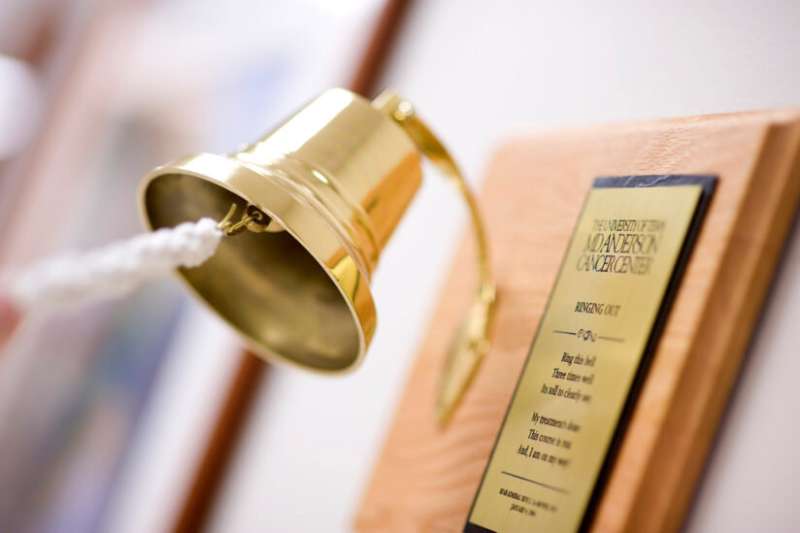Researchers uncover dangers of celebrating 'victory' over cancer

It's a staple feature of cancer treatment centers across the country: a "victory bell" for patients to ring after completing their treatment.
But the simple act of clanging the bell could stir up negative emotions that linger long after the bell falls silent, according to newly published research conducted at USC.
Cancer physician Patrick Williams and his colleagues surveyed more than 200 patients who completed their treatment and assessed how they felt about their treatment experience. About half of them rang a bell to mark their treatment milestone before leaving the hospital.
Williams, who led the study while completing his residency in radiation oncology at the Keck School of Medicine of USC, expected the bell to have a positive impact on patients. After all, they rang it in celebration. Instead, people who rang the bell viewed their overall treatment as more distressing than those who didn't.
"I was scratching my head," he said. "What is going on here?"
When he surveyed the patients again after three months, the effect had worsened. Williams speculates that ringing the bell locks in painful memories of treatment through a phenomenon called emotional arousal.
"We tend to remember events better when our emotions are aroused while the event is happening," he said. "The classic example is getting married. You're emotionally aroused in a positive way, so that memory is cemented in your brain."
Ringing victory bell after cancer treatment might lead to more distressful memories
Ringing the victory bell could have a similar effect, but with negative consequences. Williams described the bell-ringing ritual as highly emotional for many patients, with some expressing a bittersweet feeling and shedding tears.
"It's an inherently unpleasant event they just finished, so when they look back on it, because their emotions were aroused by the bell, that makes the memory of it worse," he said.
Now Williams, who works in a cancer treatment center in Santa Maria, Calif., encourages his patients—especially those who went through a prolonged and painful treatment regimen—to consider subtle and calm ways to celebrate.
"They might be better off finishing treatment and just walking away," he said.
As far as the ubiquitous bells hanging on the walls of many cancer treatment centers, he sees another potential use for them: "The first day of radiation is often one of the hardest ones for patients because they are so anxious and nervous," he said. "We suggest ringing the bell on the first day of treatment as a way of signaling the start of this experience."
More information: Patrick A. Williams et al. The Cancer Bell: Too Much of a Good Thing?, International Journal of Radiation Oncology*Biology*Physics (2019). DOI: 10.1016/j.ijrobp.2019.06.012















